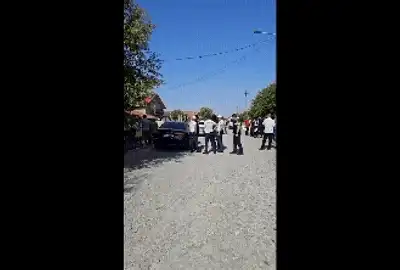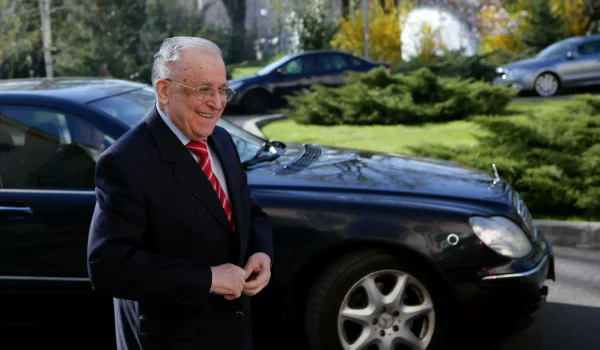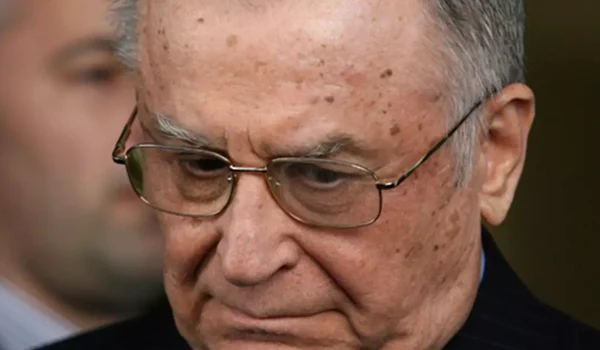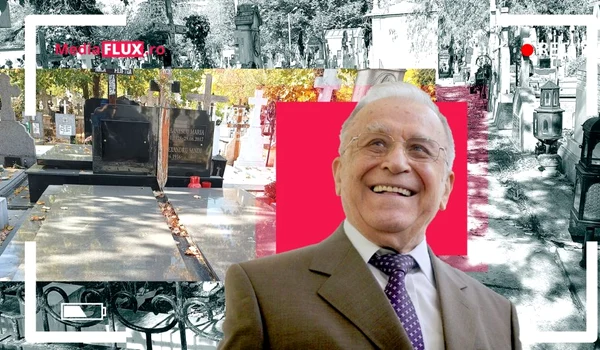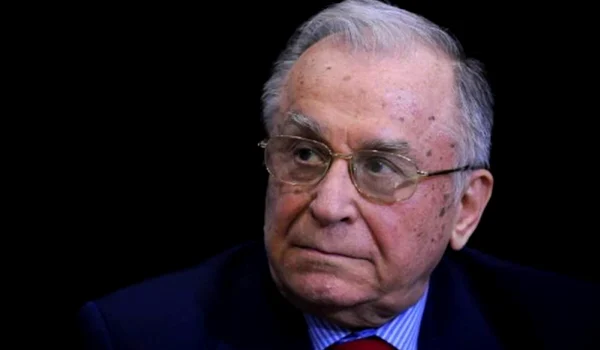
#SecDefAsh. Pentagonul (meu) de leadership
0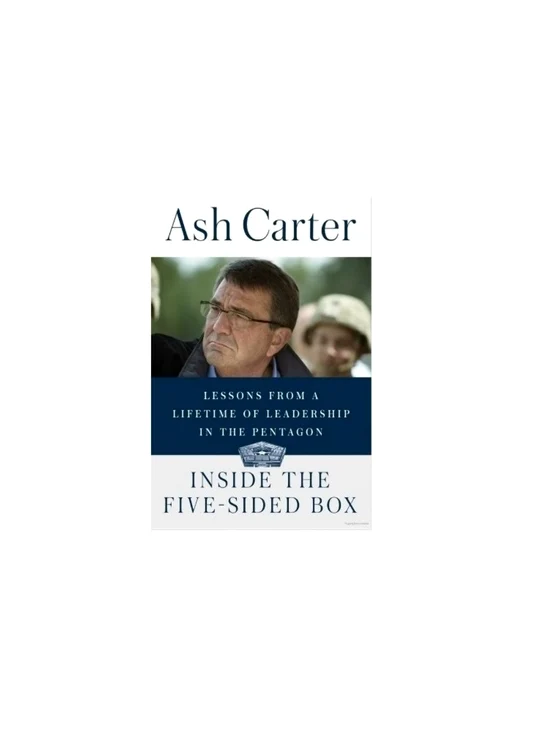
Am citit cartea cu sete. O recomand drept lectură obligatorie în Universitatea Naţională de Apărare, Colegiul Naţional de Apărare, academiile categoriilor de forţe şi SNSPA, la cursurile de leadership (tactic, operaţional, strategic). Ash Carter aduce laolaltă pasiunea, rigoarea şi integritatea absolute faţă de Cauză şi de Organizaţie, setând fără echivoc consistenţa de excepţie a unei lecturi de o valoare fără precedent pentru mine.
I. Context
Vorbim despre povestea reală a Departamentului Apărării al Statelor Unite ale Americii, relatată de un profesionist excepţional, înalt funcţionar public de top deopotrivă, care a servit organizaţia timp de peste treizeci şi cinci de ani, inclusiv din poziţiile de conducere numerele #3 (Assistant Secretary of Defense for Global Strategic Affairs; 2009-2011), #2 (Under Secretary of Defense for Acquisition, Technology, and Logistics – „acquisition czar“; 2011-2013) şi #1 (25th Secretary of Defense – SecDef; 2015-2017) Despre Ashton B. Carter, cine este şi ce a făcut / face, puteţi citi aici, aici şi, la zi, aici. Din 2018, Ash Carter este Director al Belfer Center for Science and International Affairs at Harvard Kennedy School (da-da, tot Harvard University), preluând ştafeta de la mentorul şi prietenul său, Graham T. Allison.
Celor care citiţi textul de faţă şi care aveţi preocupări şi interese profesionale în materia securităţii internaţională, vă recomand să citiţi cartea, cu luare-aminte şi creionul în mână. Are peste patru sute de pagini, deopotrivă consistente şi prietenoase ca lectură, şi un titlu foarte deştept ales: Inside The Five-Sided Box – Lessons from a Lifetime of Leadership in the Pentagon (2019; Dutton / Penguin Random House) Celor care citiţi textul meu mai degrabă din curiozitate, vă pun la dispoziţie acest paragraf incitant, preluat de pe pagina Amazon de prezentare a cărţii, ce dă anvergura reală a organizaţiei pe numele său DoD (Department Of Defense):
The Pentagon is the headquarters of the single largest institution in America: the Department of Defense. The D.O.D. employs millions of Americans. It owns and operates more real estate, and spends more money, than any other entity. It manages the world’s largest and most complex information network and performs more R&D than Apple, Google, and Microsoft combined. Most important, the policies it carries out, in war and peace, impact the security and freedom of billions of people around the globe.
II. Pentagonul (meu) de leadership
Lecţiile sunt multe şi dense. Tocmai de aceea, recomand cartea drept lectură obligatorie în Universitatea de Apărare, Colegiul Naţional de Apărare, academiile categoriilor de forţe şi SNSPA, la cursurile de leadership şi management (tactic, operaţional, strategic). Ash Carter aduce laolaltă pasiunea, rigoarea şi integritatea absolute faţă de cauză – Patria – şi de organizaţie – Departamentul Apărării – , setând fără echivoc consistenţa de excepţie a unei lecturi de o valoare fără precedent pentru mine.
Fără a intra în detaliile lecturii (citiţi cartea cu creionul în mână), dar făcând o excepţie de fond, am decis să vă împărtăşesc cele mai puternice cinci mesaje pentru mine, pe care eu le-am extras din suita de principii, convingeri proprii, recomandări şi lecţii formulate de un om care şi-a trăit viaţa profesională aproape în totalitate în context DoD. Excepţia pe care am menţionat-o este cea conţinută în corpul primului mesaj, unde am preluat aproape exhaustiv conţinutul unei secţiuni care m-a impresionat extrem de puternic (Speaking Truth About the Reasons for War – pp. 413-4)
Iată mesajele de leadership pe care eu le-am reţinut drept cvintet-cheie – de aici, syntagma „pentagon de leadership“:
- Focalizarea continuă şi totală pe „trupe“, cu integritate, curaj şi fără jumătăţi de adevăruri (The Troops Deserve The Truth) Înlocuiţi war cu orice misiune / proiect, trupe cu oamenii care dau viaţă misiunii / proiectului şi veţi avea imaginea clară a forţei acestui mesaj. Iată şi secţiunea care m-a impresionat profund, prin vibraţia profund umană pe care o transmite:
War has to be spoken about bluntly, especially when leaders are talking with members of families who have sacrificed everything for their country. Accordingly, I used honest language – words like „war“ and „combat“ – whenever it was appropriate, and ignored the „suggested edits“ from the White House staff substituting other, less forthright words.
As I’ve noted, I also began changing the language we used to define our goals in the fight against ISIS, shifting from half-hearted verbs such as „degrade“ in sentences like „We will degrade the capabilities of ISIS“ to tougher words, like „defeat“ and „destroy“. When I met with the families of officers, I told them that history would remember their loved ones as „victorious commanders“. Our intent had to be nothing less.
The most important audience for these messages about the reality of war were the troops themselves.
At every important moment of the wars during my time as SecDef, I gave a speech explaining to the troops what they were doing and why it was important. Thus, shortly after we completed the coalition military campaign plan against ISIS and the president had approved it, I travelled to Fort Campbell, Kentucky. That’s where the 101st Airborne was preparing to deploy to Baghdad – the first unit to begin putting the new plan into action. I wanted them to have a clear notion of what their missions was in my own words – in words they could appreciate, and in words they could share with their spouses, their children, and their parents.
That was my goal in every troop event, whenever it was, stateside or around the world. To accomplish that, I made sure to do two things.
First, I told troops how proud I was of them, how proud their country was of them, and how proud they should be themselves. I said they were doing „the noblest thing you can do with your life – protecting America and making a better world for our children.“ I told them they were part of „the finest fighting force the world has ever known“ – a phrase I used in practically every speech I made, mainly because I believed in it to my bones.
Second, I told the troops precisely what we were asking them to do – what the strategy was and why it was the right one. I told them how it would fit into history. […]
Strategy and history are big ideas to these young people, many not yet out of their teens. But if my words were clear and direct, they could remember the words, they could repeat them to their mom or dad, and hopefully they could recall them proudly for the years to come. […]
- Valoarea critică a meritocraţiei autentice, cultivate şi crescute pe întreaga verticală a sistemului. Cartea abundă de exemple relevante, începând cu cei 16 militari de top, generali / amirali, pe care SecDef are a-i numi în funcţii, până la profesioniştii cei mai tari, care pun în mişcare toate structurile DoD.
- Navigarea curajoasă şi inteligentă împotriva curentului politic, când faptul este evident fără echivoc iar credinţa în viabilitatea argumentului este de nezdruncinat.
- Pregătirea cantitativă hiper-minuţioasă a deciziilor strategice, înainte de a fi luate de către decidenţii de top (Preşedinte, SecDef). Ash Carter accentuează în nenumărate rânduri că temele bine făcute din timp conferă mari şanse de reuşită la capătul final al procesului premergător implementării – decizia finală DA, în loc de NU.
- Cultivarea organică a polarităţii strategice leadership-reinforcement. În instrumentarul #SecDefAsh, leadership înseamnă acţiunea mai degrabă disruptivă, de canalizare a oamenilor şi organizaţilor pe direcţiile inconfortabile ale teritoriilor neexplorate încă, iar reinforcement înseamnă capitalizarea pe valenţele structurale ale memoriei organizaţionale, adică pe toate punctele valoroase acumulate de-a lungul timpului, de organizaţie şi de oamenii săi.
Citiţi cartea.
E fascinantă!


